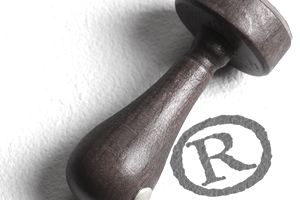What are the benefits of registering your trademark?
The Importance of Trademark Registration
When you decide to start a business, one of the things you consider is how to distinguish your business from other businesses offering the same goods or services as you do. You come up with a name that customers can remember and build up enough goodwill so that you are the first business they think of when they want the goods or service that you provide. You might be feeling content with your setup until you hear that there is another business with a similar mark offering the same goods and services. Now, you’re in panic mode because your mark is not registered.
What is a Trademark?
A trademark is any word, name, symbol, or device, or a combination of them, which represents your goods and services. It serves as a source identifier for your goods and services, distinguishing it from those produced by others. A trademark gives you rights over the use of a particular mark for your goods and services and prohibits others from using the same or similar marks to represent similar goods or services.
Do you Have to Register your Trademark to Get Legal Protection?
Your trademark is not validated by registration. Indeed, there is no requirement to register your trademark to for legal protection to exist. Your trademark takes effect as soon as you present it to your customers as a way to identify your goods and services and distinguish them from others. Registration of your mark is not mandatory. As long as you can establish first use of the mark, you can still use it in commerce and enforce it against any subsequent user who infringes on your use of the mark.
While registration is not required for your trademark to enjoy legal protection, there are valuable benefits to registration.
Prima Facie Evidence of Validity
Registering your trademark provides prima facie evidence of the mark’s validity. This means that your mark is presumed to be valid until proven otherwise.
Constructive Notice of Claim of Ownership
When you register your trademark, it is listed in the trademark registry, which is accessible to the public. Therefore, the consuming public, including potential infringers, are on constructive notice of your trademark rights. This means that an infringer cannot deny knowledge of the existence of your trademark. Any other person or business thinking of using the same or similar mark as yours will have the benefit of the trademark register to show them that the same or similar mark is already in use by another business.
Broader Legal Protection
Under common law, trademark protection is extended to the first user of the mark, within the geographic market of the business, against any subsequent user of the same or similar mark. If your mark is not registered, you limit any possibilities for expansion of your business outside of your current geographic market. This means that the use of your mark could be limited to one county if there is a registered competing mark.
The internet has become an important aspect of trade and has given many businesses an opportunity to expand beyond their geographic markets. Not registering your trademark may limit your ability to expand and take advantage of new markets.
Take Action by Contacting an Experienced Trademark Attorney in Los Angeles Today
It is incredibly important to protect your brand identity; hence, it is in your best interest to invest the time and resources to secure a trademark registered with the United States Patent and Trademark Office. Once registered, it will provide you exclusive right to use the mark with specific goods or services. Furthermore, there is tremendous value in completing a trademark assignment the right way. In either instance, you should retain the services of an experienced and knowledgeable trademark attorney in Los Angeles such as the professionals at the Omni Legal Group. Omni Legal Group is a premier Patent, Trademark, and Copyright law firm located in Los Angeles. For further information or to schedule a consultation please contact Omni Legal Group at 855.433.2226 or visit www.OmniLegalGroup.com to learn more.
Read More









